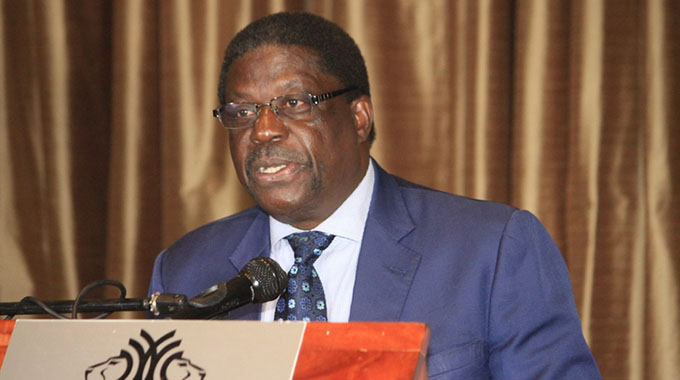EDITORIAL COMMENT: Industry needs collective, holistic policies

 SINCE last year, Government and various economic players have been working together to find ways of improving the doing business environment in the country.
SINCE last year, Government and various economic players have been working together to find ways of improving the doing business environment in the country.
The noble consultative process involved meetings with development partners, the United Nations, the Confederation of Zimbabwe Industries, and the Zimbabwe National Chamber of Commerce among others.
We applaud the Government and its partners for taking this route as a way to find solutions to the prevailing economic challenges.
Dialogue among partners will ensure buy-in from all concerned and enhance cooperation.
We are encouraged that the private sector has and continues to play its part. On the other hand, the Government has been implementing policy measures to improve the doing business environment.
Already, the Government has directed mobile phone operators to reduce mobile phone and data tariffs. Charges for other utilities are also expected to be reduced under the initiative.
Only recently, the Government lifted the ban on chrome ore exports and scrapped the 20 percent export tax on the mineral in a move expected to improve viability of miners, create thousands of jobs and improve revenue inflows for the fiscus. In addition, assisting chrome ore producers to operate viably and to allow them to create investment capacity in smelting, the Government reduced electricity tariffs from eight cents to 6,7 cents per kilowatt hour for chrome ore smelters. This is but to mention just some of the initiatives that the Government has already put in place.
However, there is more work that needs to be done if industry is to be capacitated to compete with regional players. The major highlights from this global competitiveness report for Zimbabwe showed that the country moved seven ranks up the ladder to 124th this year from 131st position from the previous year out of 144 economies. This is welcome but we can do better.
The revelation by CZI before the portfolio committee on industry this week is telling.
CZI, the umbrella body for industry, revealed that while there are some positives, the process is slow. CZI said it is one of the stakeholders that presented a paper to Government offering ideas on how to improve the doing business environment in Zimbabwe. However, the industry body is concerned at the slow pace of implementation.
As such, we urge the Government to speed up implementation of the corrective measures as the delay continues to affect industry and this has a ripple effect on the economy.
Some of the measures which are still outstanding include policy measures to deal with cheap imports which are hurting local manufacturers.
We have seen piecemeal interventions in various sectors but what industry is clamouring for is a comprehensive, holistic policy to guide the market. There must be a well-thought-out, well coordinated process for the entire market. Kneejerk reactions do not necessarily serve a purpose.
Industry has also highlighted that the plethora of licences required before commencing operations is adding huge costs even before the business starts receiving income.
We know Government has set up the One-Stop-Shop at the Zimbabwe Investment Authority but still has not dealt with the issue of the licensing requirements. The other worrying cost for which industry requires urgent attention relates to labour. Industry said labour costs in Zimbabwe are too high compared to other countries in the region. The sad thing is that labour costs in the country are not tied to production or demand.
We have fixed labour costs for which industry is forced to foot even when demand for goods and services declines. The Government has committed to amend labour laws but still there has not been movement on the issue. We must do away with bureaucratic tendencies.








Comments